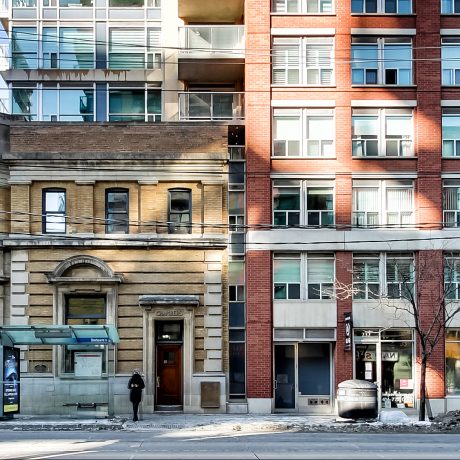Posted on September 3, 2013 in Renting
It’s been nearly a year since we posted our ten tips for finding and securing an apartment in Toronto and it’s been one of our most popular posts ever.
And while the vacancy rate hasn’t improved for tenants, we have been able to collect a few more tips for the desperate, soon to be homeless renter in Toronto. Here goes!
1. Gear up
Review our first 10 Tips to Conquer the Toronto Rental Market.
2. Contact the landlords who didn’t post pictures.
We know your gut reaction – we had it, too: “No pictures must mean it’s too scary to photograph.” Turns out some landlords just haven’t figured out that posting pictures makes a huge difference in the amount of action their listing receives. Give them a call and take the chance. It might be a gem. It still might be super ugly. But it’s worth a shot to have a look while all your competition is checking out the 500sqft 2 bedroom with the strategic HDR photos of one foot of countertop.
3. Start early.
Seriously early. Before you give notice early. If nothing looks appealing re-evaluate your desire to move. Not really a helpful tip to those who have given notice, but pair it with tip 4 below for better results.
4. Get the word out.
Put it out to your networks, be it Facebook, Twitter or your quilting bee, that you are looking to move and what you are moving from. Maybe a trade could be arranged saving you and your landlord some hassle if all goes well. A client pointed out a building not too long ago and asked how someone gets in there. My answer: you have to know someone moving out.
5. Look at sublets.
Sometimes the terms “sublet” and “assignment” get treated as one in the same. They aren’t. Sublets are for when the original tenant is coming back. Assignments are for when they are moving on for good. Easy mistake to make as in both cases the tenant is the one searching for a replacement tenant and not the landlord. Many rental listing sites have a sublets section. Check it out for some more options – that sublet could actually be an assignment.
6. Consider a sublet.
Maybe this should be point 5.1. instead but those really great apartments that never seem to hit the open market could be a pair of golden handcuffs for the tenant. They know they have the deal of the century but they also know they will never get it back if they took an opportunity out of town. What to do? Hopefully, the answer is to sublet it to you and then never come back. Or it buys you some time to continue your search. You might have to arrange to rent a storage locker, but the net cost might be worth it to live where you want to.
7. Roommate up.
Your dream is to live alone. The cost of doing so is another thing. The places in your budget could be so far from the rest of your life you’ll never go out or if you opt for a place near your life you might never go out for lack of funds. Look at this rent heat map to see what we mean. Take your budget, double it and take a look at what you can find for that. If you like what you see start interviewing roommates. Preference should be given to those who like to cook and/or clean the toilet…
8. Be ready for the worst.
Something we’ve seen all too often is landlords discriminating against certain tenants. Three guys in their twenties will lose out to the three gals in their twenties. The oddball without a dog will win over you with one. The Ontario Landlord and Tenant Act clearly outlines that this is not okay but it happens. Think about why you might be discriminated against and face it head on. Your cat is hypoallergenic and an excellent mouser? Get a testimonial to this fact to accompany your application. Don’t wait for the landlord to call your references, if they have a bias against you they aren’t going to call.
9. Got some skills?
This can increase your odds in two ways: 1. you could be a live-in caregiver, groundskeeper or…? 2. You could negotiate a reduced rent making an unfeasible place feasible by taking on the snow-shoveling, landscaping, rebuilding the deck, you name it.
10. Consider buying.
This is such a typical real estate agent answer that we’re cringing as we include it. We are not trying to change your mind about renting so we can score a bigger deal for our books. However, looking at buying objectively might be better for your books. If you are considering renting a condo, consider this: the landlord is charging a rent that ideally covers all their costs and factors in maintenance fees, property taxes and mortgage payments. So why are you paying their carrying costs while they get the benefit of building equity in the property and (hopefully) an increase in value down the road?
Relieved? Hopefully. Want to talk? Call or email us.




